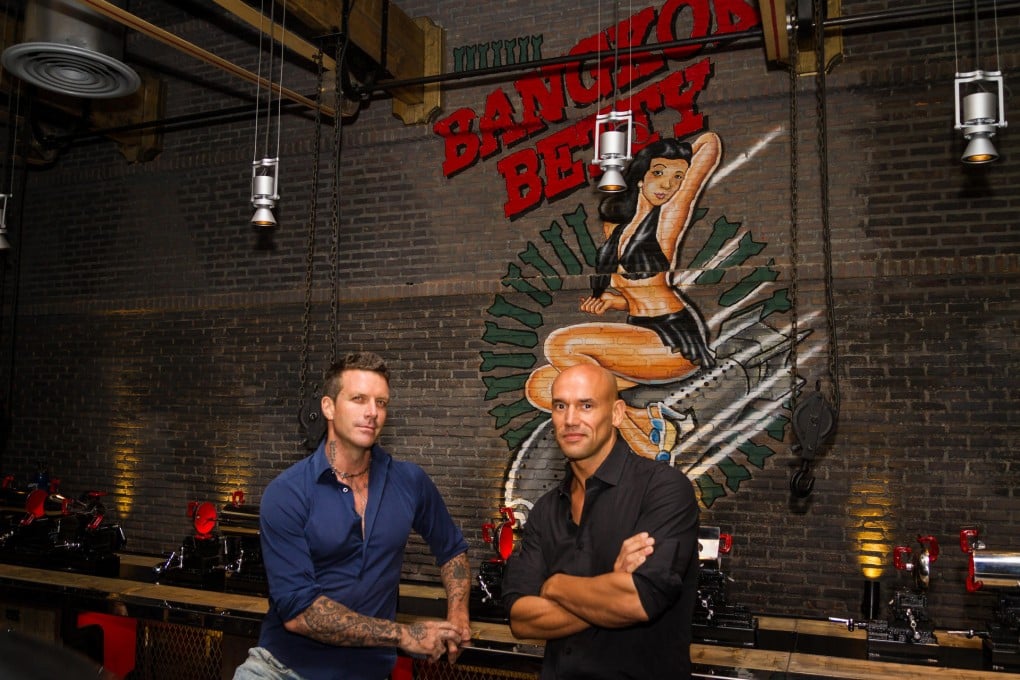Double the fun factor
Bangkok's up-and-coming Sukhumvit Soi 22 is now the city's most buzzworthy nightlife destination with cultured clubs and a members-only cinema

Thailand's iconic nightlife precincts require little introduction: the neon-bathed netherworlds of Nana, Soi Cowboy and Patpong, the Hi-So hotspots, indie kids' clubs and too-cool-for-school bars of Thonglor and Ekkamai, Japanese-only Soi Thaniya, the mega-clubs and rave dives of Royal City Avenue (RCA), and the bastion of Bangkok clubland, Sukhumvit Soi 11, home to iconic establishments such as Q Bar and, until recently, Bed Supperclub.
Twice the value of Soi 11, in the monetary and mathematical senses, Soi 22 is a contender for the title of the city's most interesting and buzzworthy nightlife and culture destination. A creeping creative zeitgeist clings to the likes of the Friese-Greene Club, a secret-door cinema with nine seats, RMA Institute, an experimental art space and gastro-cafe, where you can have your gravlax and chorizo ciabatta and throw it at a canvas as art too, the recently opened Overground, with bands including Kamp Krusty who do hip hop on ukelele with an American who can sing in perfect Thai), Panic Station, Aerolips (a Thai Eurythmics) and Wasabi Bytes, a two-man electro band headed by Overground's owner, Australian journalist Grahame Lynch.
Soi 22's scene was really created by Thaksin Shinawatra's early-closures crackdown in 2001 [when] "speakeasies" sprung up
The street will rachet up the buzz a notch or two this week as the cogs and gears of Bangkok Betty grind into life on the ground floor of the new Holiday Inn. At the base of this black obelisk, a short stroll from the sclerotic chaos of Asoke junction, the latest chapter in the fairytale rise to fame of antipodean ex-miner Ashley Sutton, Bangkok's "it boy" of bar and restaurant design, is being written. Bangkok Betty is a high-concept flight of fancy from the rich imagination of Sutton, preceded by the baroque steampunk decadence of Iron Fairies, fish and chips saloon Fat Gut'z, milk bar Mr Jones' Orphanage, black magic-inspired Five and the hipster-approved, smoke-shrouded, rammed-to-the-rafters orientalist fantasy that is Maggie Choo's.
Sutton, who reimagines the bar and diner as a bomb factory churning out high explosives for B17 bombers, did in-depth research on the planes and their place in the second world war. Ancient pulleys and levers descend from the high ceiling, racks of shiny stainless steel bombs are everywhere, and the bombshell that is Bangkok Betty is painted on the brown brick wall in B17 "nose art" style, above an artistic interpretation of a bomb assembly line.
The room is dominated by its centrepiece, a life-sized 90-kilogram bomb straight out of Dr Strangelove, polished to a sheen and mounted on a plinth: death mirroring art, pregnant with menace, more Fat Man than Little Boy.
A week out from opening, Sutton is pacing and muttering in the bar while mixologist Joseph Boroski, global adviser on cocktail culture to W Hotels, consultant to Hong Kong restaurant Sevva and Bangkok institution Eat Me, and on point for cocktails at all of Sutton's best bars, surveys the scene through hooded Buddha eyes and sips his water.